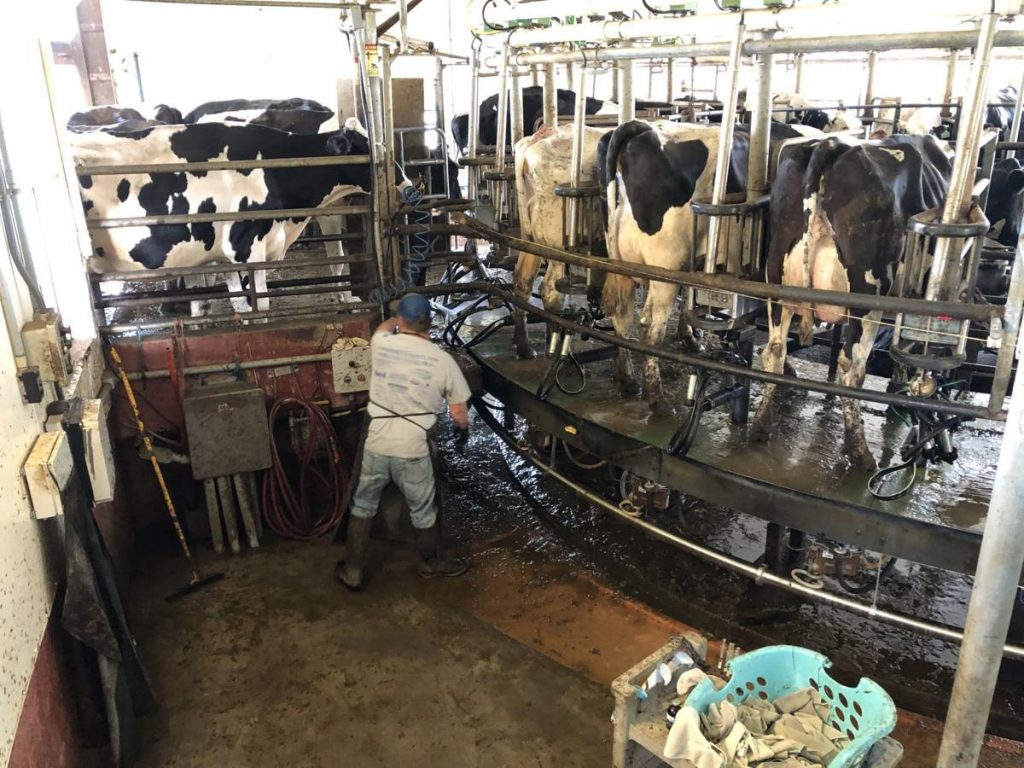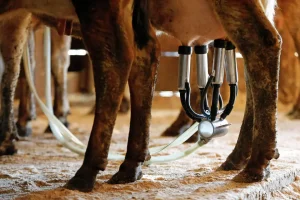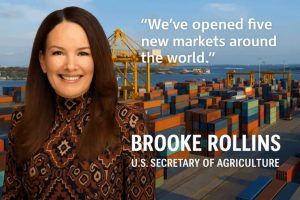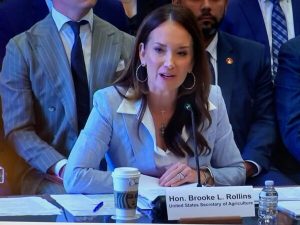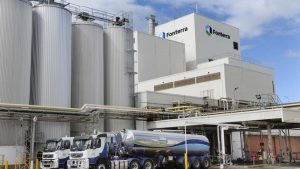
“It’s certainly going to help,” Stoltzfus said. “It’s been pretty rough these last few years, especially in the dairy industry. But the dairy industry isn’t the only one suffering. Some of the other commodities have, too.”
U.S. Secretary of Agriculture Sonny Perdue on July 25 announced further details of a $16 billion package aimed at supporting American farmers. In May, President Donald Trump directed Perdue to craft a relief strategy in line with the estimated impacts of “unjustified retaliatory tariffs on U.S. agricultural goods and other trade disruptions,” according to a press release from the USDA.
The United States has been engaged in a trade war with China, one of the top buyers of U.S. agricultural exports.
According to the USDA, the Market Facilitation Program, Food Purchase and Distribution Program and Agricultural Trade Promotion Program will assist agricultural producers while Trump works to address long-standing market access barriers.
Some of the eligible farms include those that raise dairy, soybeans and hogs, all of which exist in Somerset County.
Stoltzfus said that he and his three brothers, who own Pennwood Farms in Berlin, have had to tighten their belts the past few years as the dairy market has struggled. He said there is frequently no extra money to update and maintain equipment. Stoltzfus said it’s unclear who he is going to support in the next election.
“We certainly like some of the things that this administration has done as far as regulations go with the (Environmental Protection Agency),” he said. “And borders with the U.S. and that sort of thing. Farmers have been complaining for years. Twenty, 30, maybe even 40 years. We don’t play on a level playing field with the rest of the world.
“This administration has taken a different tactic. I personally think that American farmers can compete with anybody globally. We have the infrastructure and we have the technology that other places in the world don’t have. I think we’re positioned very well to compete with the rest of the world.”
Tom Croner, who raises corn, soybeans, wheat and hay in Berlin, said he wants to wait and see what congressional action is taken on the issue before he makes up his mind on the aid package. Still, he’d rather let capitalistic forces dictate how well local and national farmers do.
“If we have markets that want our products, that’s the best solution we can hope for because we have the ability to produce and grow what the world needs,” Croner said. “We would much prefer to get our rewards and revenue out of the market.”
Mark O’Neill, spokesman for the Pennsylvania Farm Bureau, expressed a similar sentiment. He said it is critically important to restore agricultural markets and mutually beneficial relationships with trading partners around the world.
“The reality is that farmers appreciate any assistance they receive from the Market Facilitation Program,” O’Neill said. “But that assistance does not make them whole and it does not provide for long-term solutions or address other concerns, such as losing access to foreign markets and customers.”
